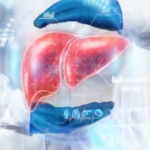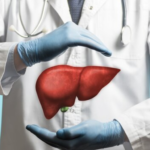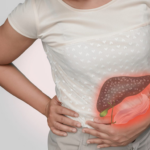
Chronic liver disease (CLD) encompasses a spectrum of conditions that pose significant challenges to global healthcare systems. From viral hepatitis to non-alcoholic fatty liver disease (NAFLD) and autoimmune liver diseases, the burden of CLD is substantial. However, recent advancements in medical science have brought about promising treatments that are revolutionizing patient outcomes.
Liver Transplantation: Advancements and Innovations
Liver transplantation is widely recognized as the most effective treatment for end-stage liver disease and acute liver failure. Over the years, surgical techniques have evolved significantly, leading to improved outcomes and expanded eligibility criteria for transplantation. Innovations such as split liver transplantation, where a single donor liver is divided and transplanted into two recipients, have helped address organ scarcity and reduce waiting times.
Furthermore, advancements in immunosuppressive medications have enhanced the success rates of graft survival post-transplantation. These medications help prevent organ rejection while minimizing the risks of complications. Improved post-operative care protocols and better understanding of transplant immunology have also contributed to the success of liver transplantation as a life-saving intervention.
Pharmacological Breakthroughs in Liver Disease Management
Pharmacotherapy plays a crucial role in managing chronic liver diseases, particularly viral hepatitis. The introduction of direct-acting antivirals (DAAs) has transformed the treatment landscape for hepatitis C, achieving cure rates exceeding 95% in many cases. These medications are well-tolerated, have shorter treatment durations, and significantly reduce the risk of liver cirrhosis and hepatocellular carcinoma.
Similarly, nucleos(t)ide analogs for hepatitis B virus (HBV) have proven effective in suppressing viral replication, thereby preventing disease progression and reducing the incidence of liver complications. Ongoing research aims to develop novel therapies targeting viral entry, immune modulation, and viral persistence to further enhance treatment outcomes for HBV.
In the realm of NAFLD and non-alcoholic steatohepatitis (NASH), lifestyle modifications, including diet and exercise, remain fundamental. However, promising pharmacological therapies targeting metabolic pathways, inflammation, and fibrosis are under investigation. These treatments hold potential for addressing the underlying mechanisms of NAFLD/NASH and mitigating disease progression in affected individuals.
Cutting-edge Therapies and Innovations
Beyond transplantation and pharmacotherapy, innovative approaches are emerging to address the complexities of chronic liver diseases:
1. Non-invasive Assessment Tools: Techniques such as transient elastography (FibroScan) and magnetic resonance elastography (MRE) provide non-invasive assessments of liver fibrosis and steatosis. These tools reduce the need for invasive liver biopsies, offering safer and more patient-friendly alternatives for disease monitoring.
2. Precision Medicine: Genetic profiling and biomarker studies are advancing personalized medicine in liver disease. By identifying genetic variants associated with disease progression, clinicians can tailor treatments to individual patients, optimizing therapeutic outcomes and minimizing adverse effects.
3. Regenerative Therapies: Stem cell therapy and liver tissue engineering represent innovative approaches to regenerate damaged liver tissue. These therapies seek to restore liver function and potentially lessen the necessity for transplantation in the future. While still in the experimental stages, ongoing research holds promise for clinical application in patients with advanced liver disease.
Summary
In summary, Dr. Prasad Bhate, renowned as the best Gastroenterologist in Pune, leads pioneering efforts in the treatment of chronic liver diseases. His expertise and dedication to advancing medical therapies are instrumental in improving outcomes and quality of life for patients. For more information on Dr. Bhate’s ground-breaking work and innovative treatments.
This blog explores the transformative impact of emerging treatments on chronic liver disease, highlighting how innovations in transplantation, pharmacotherapy, and therapeutic approaches are reshaping the future of liver disease management globally.




